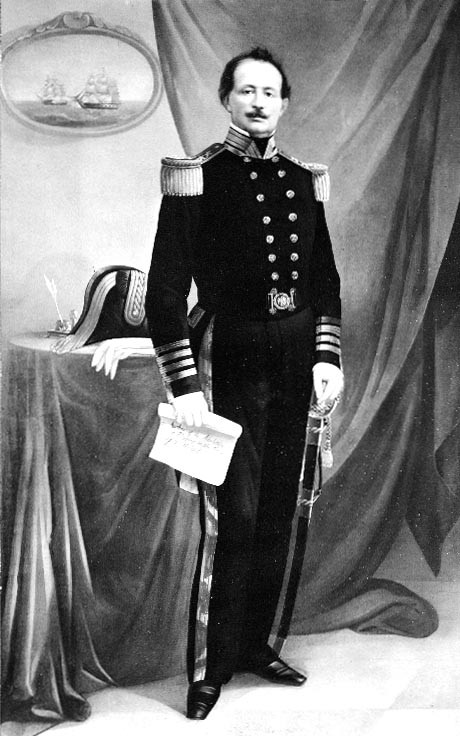IN THE SPRING OF 1842, Commander Uriah Levy found himself in a makeshift courtroom in Barnum’s City Hotel in Baltimore, facing a panel of five unsmiling naval officers. If this was a circus, Levy had been in center ring before. He holds the record for the most times a U.S. Navy officer has been hauled before a military tribunal: six courts-martial and two courts of inquiry.
Levy’s 1842 trial concerned the spectacle of punishment, homosexual liaisons among members of his crew, and the role of shame in the exposure of the male body. Mostly the case was about the male backside, about its context and symbolism, about a boy’s butt and how it differs from a man’s butt, about the legal delineation of the point in time when the juvenile gluteus maximus moves from the public sphere and becomes something a man possesses in his own right, a res with entitlements and protections. In the end, the court case was about ass cracks.
Uriah Levy was the only Jew of his rank in the Navy, and most of his court appearances were triggered by his refusal to accept the pointed anti-Semitism he encountered from his fellow officers. Judicial hearings frequently concluded that Levy had been intolerably provoked in his violent outbursts—yet he was still censured, kicked out of the Navy (and then reinstated), and passed over for plum assignments for which he was clearly qualified. When pressed, the Secretary of the Navy explained that, although he himself held no prejudice against people of the Hebrew faith, he needed to assemble crews that could work together:
I perceived a strong prejudice in the service against Capt. Levy, which seemed to me, in a considerable part attributable to his being of the Jewish persuasion; and while I as an executive officer had the same liberal views which guided the President and Senate, in commissioning him as a Capt., I always endeavored, in fitting out ships, to have some reference to that harmonious co-operation which is essential to the highest effectiveness.








